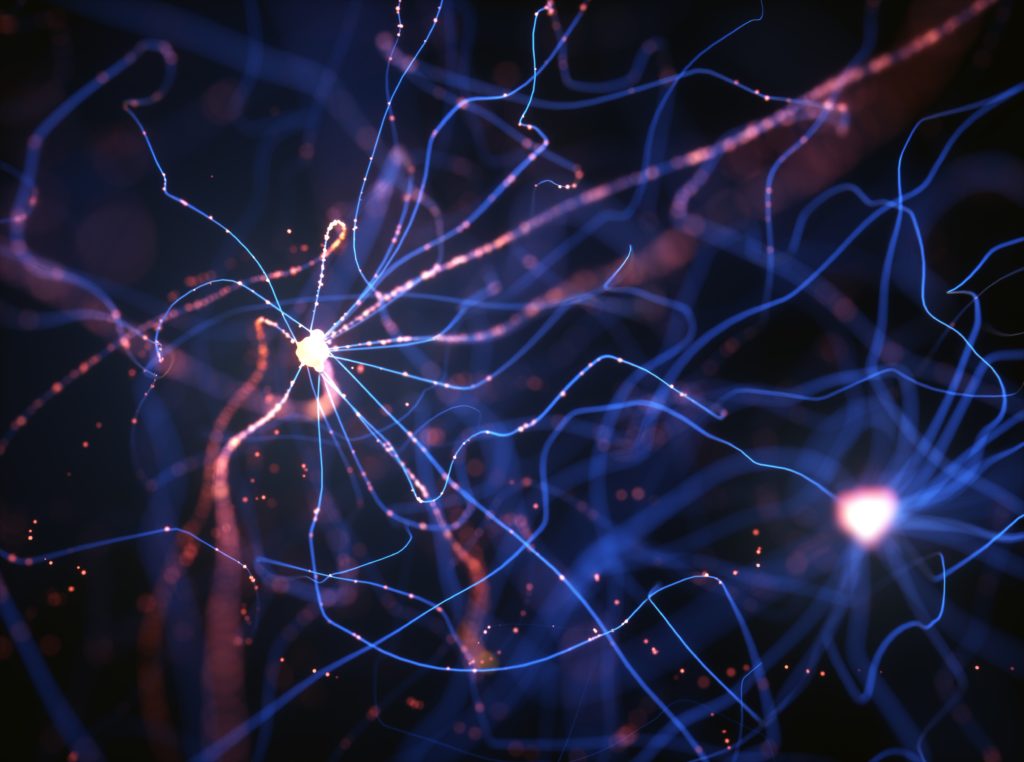Quick Hits
Daily brief research updates from the cognitive sciences

There are different types of dark matter in the brain. Matter that is often little researched or unknown to different population groups. I have written previously about glial cells and their contribution to just about everything, something neuroscientists know a lot about, to electrical neurons, that have been vastly under researched.
But now some researchers have made some discoveries in another area, and that is that of silent synapses. Synapses are the connections between your brain cells. The current understanding is that as you learn, develop new skills, synapses connect, and strengthen and build the networks in your brain – this is how your brain is continually growing and changing. However, these would always be part of a network. Silent, inactive synapses have been seen in the brains of developing mice so it was thought they played a key role in the developing brain but not in adults.
However, in an unexpected discovery MIT researchers have found silent synapses at levels 10 times higher than expected. The researchers were not actually looking for silent synapses but trying to measure neurotransmitter receptors on the branches of neurons. Some of these branches and connections, known as filopodia, are extremely fine and small and are difficult, or impossible, to see with standard imaging techniques.
On discovering these in such high quantities they then proceeded to investigate whether they were indeed silent synapses by attempting to stimulate these with a combination of a neurotransmitter and an electrical stimulus. They found that indeed these were silent but could grow into active synapses much quicker than by altering mature synapses.
That’s good news and this explains how we can learn things quicker – having silent synapses allows rapid learning and being able to build new memories without building whole new synapses.
Whether this is different between different people is another question – but I am hoping I have a bunch of silent synapses waiting to spring into action when I engage with new material – such as writing this article – go silent synapses, go!

Andy Habermacher
Andy is author of leading brains Review, Neuroleadership, and multiple other books. He has been intensively involved in writing and research into neuroleadership and is considered one of Europe’s leading experts. He is also a well-known public speaker, speaking on the brain and human behaviour.
Andy is also a masters athlete (middle distance running) and competes regularly at international competitions (and holds a few national records in his age category).
References
Vardalaki, D., Chung, K. & Harnett, M.T.
Filopodia are a structural substrate for silent synapses in adult neocortex.
Nature, 2022
DOI: 10.1038/s41586-022-05483-6
More Quick Hits
So, Meditation Doesn’t Change Your Brain – Or Does It?
editation can actually change your brain. "Oh, no it can’t!" say these researchers. "Oh, yes it can!" say a lot of other researchers. Does this start to sound confusing? Well, it does because there has been plenty of evidence that...
The Life Factors that Make Lonely People Lonely
Quick HitsDaily brief research updates from the cognitive sciences ou may assume, logically at first glance, that not having contact to people is the most important factor in loneliness. And obviously this does have a large impact — but...
How Music Helps With Collective Grief
his study recently out analyses a fascinating episode in China at the start of the pandemic. A group of international musicians in Shenzhen produced a viral hit in China. This was a cover version of Michael Jackson's “you are not alone”...
Why it pays for companies to help workers have a good day in the office
usiness and executives in those businesses are more than keen to get a competitive advantage. To this end they invest heavily in technology and getting the right people to do the job. But, I am sure, we are all more than aware that the work...
Vaccination to Keep Your Memory?
Quick HitsDaily brief research updates from the cognitive sciences ho wouldn’t want to keep their memory when aging?! Well, researchers have just announced some promising results in mice enabling them to keep their memories and avoid some of...
Can Having More Children Reduce Cognitive Functioning?
Quick HitsDaily brief research updates from the cognitive sciences aving more children and late life cognition is not something that is generally researched. There are more obvious avenues such as diet, education, exercise, or socio-economic...






